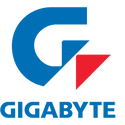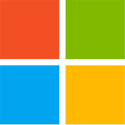
Razer & Amazon Web Services Team Up - Revolutionary AI Game Developer Tools Coming Soon
Razer, the leading global lifestyle brand for gamers, today announced the upcoming launch of its innovative AI Game Developer Tools on Amazon Web Services (AWS). This milestone marks a significant leap forward for the company, bringing its powerful development solutions to the cloud to enhance scalability, accessibility, and innovation for millions of game creators worldwide.
With 3.32 billion gamers globally and a market projected to reach $424 billion within the next decade, the gaming industry is evolving at an unprecedented pace. Mobile and cloud gaming are lowering barriers to entry, while AI is transforming virtual worlds into more immersive, intelligent experiences. Razer's AI Game Developer Tools are purpose-built to meet the demands of this dynamic landscape, offering seamless AI integration tailored specifically for game developers and gamers alike. The new tools—Razer Game Assistant, and Razer QA Companion—are part of WYVRN, Razer's next-generation AI-powered gaming ecosystem designed to accelerate and revolutionize game development.
With 3.32 billion gamers globally and a market projected to reach $424 billion within the next decade, the gaming industry is evolving at an unprecedented pace. Mobile and cloud gaming are lowering barriers to entry, while AI is transforming virtual worlds into more immersive, intelligent experiences. Razer's AI Game Developer Tools are purpose-built to meet the demands of this dynamic landscape, offering seamless AI integration tailored specifically for game developers and gamers alike. The new tools—Razer Game Assistant, and Razer QA Companion—are part of WYVRN, Razer's next-generation AI-powered gaming ecosystem designed to accelerate and revolutionize game development.



































































